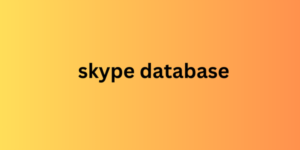Table of Contents
Get to know PDPA: What is it?
What personal data is subject to PDPA?
Details of the PDPA protection that data owners will receive
Regulations for organizations that need to use personal data
summarize
Get to know PDPA: What is it?
The Personal Data Protection Act 2019 or PDPA, which is short for Personal Data Protection Act, is a law that was issued to protect personal data. It is very useful for businesses that require customers to provide various information to the company. This law is issued to control companies or organizations from using customer data without permission or consent from the owner of that data. Currently, we see a lot of news about crimes related to people's personal data. This law will protect all of them.
For businesses or organizations that need to collect personal information of customers or those who use various services, they must be careful in collecting and using personal information of customers. If the owner of the information does not give consent but the company uses it, it is certainly wrong and punishable by law, including criminal, civil and administrative penalties.
What personal data is subject to PDPA?
Personal Data: Data that can identify an individual, such as:
Name and Surname
address
Telephone number
Financial information
Health information
Images that represent identity
Details of the PDPA protection that data owners will receive
For data owners who have provided their data to companies or skype database organizations, there are many rights that data owners can receive from the PDPA that data owners should be aware of, as follows:
Right of access to information
Of course, if you are the owner of the data that you have provided to any organization and would like to access your data, you can request access and get a copy of the personal data that the organization holds. However, it must not violate the law or court order and must not affect other people.
Right to rectify data
Data owners have the right to request that inaccurate or incomplete data be corrected to be current and prevent errors.
Right to erasure of data
For those who want the organization to delete their information, data owners have the right to request the deletion of their personal data in certain cases, such as if your information is published in a public place. You can request that it be deleted or destroyed. The person who uses your information must delete and destroy it, and must be responsible for all costs of deletion and destruction.

Right to be informed
When you have to provide your personal information to an organization in any way, the person who will collect your information must first inform you what personal information is being collected, what the purpose of the collection is, how long we will keep our information, and how the information will be used.
Right to restrict processing and disclosure of data
Data subjects have the right to request restriction of processing or object to the collection of personal data in certain circumstances.
Right to data portability
Data owners have the right to request and transfer their personal data to another organization.
Right to cancel data suspension
If the data owner wants to cancel the provision of data, cancel or suspend the use of data, they can do so at any time. However, the cancellation of data must be managed and the cancellation method must be simple and uncomplicated.
Regulations for organizations that need to use personal data
Organizations must have measures to protect personal data, such as requesting consent from data owners before collecting, using or disclosing data, maintaining the security of personal data, reporting incidents of data leaks or attacks, to build trust with data owners and prevent being sued by data owners. If the law is not followed, data owners can be held liable, which is subject to legal penalties, including criminal, civil and administrative penalties.
